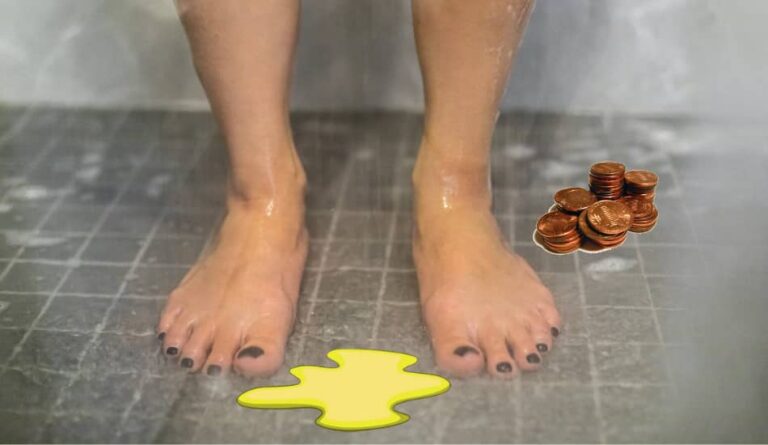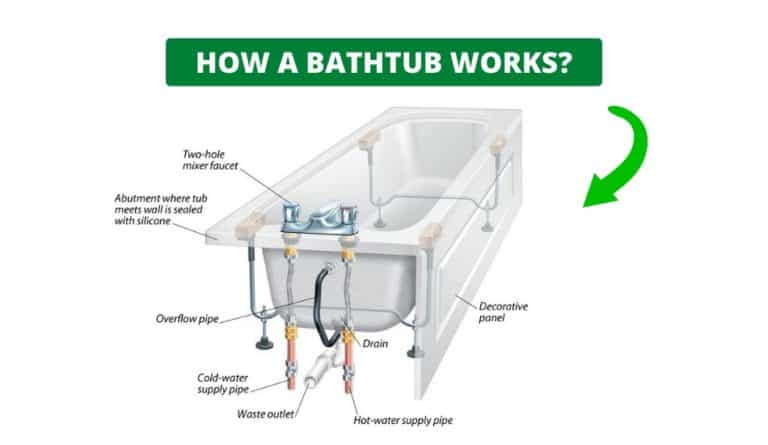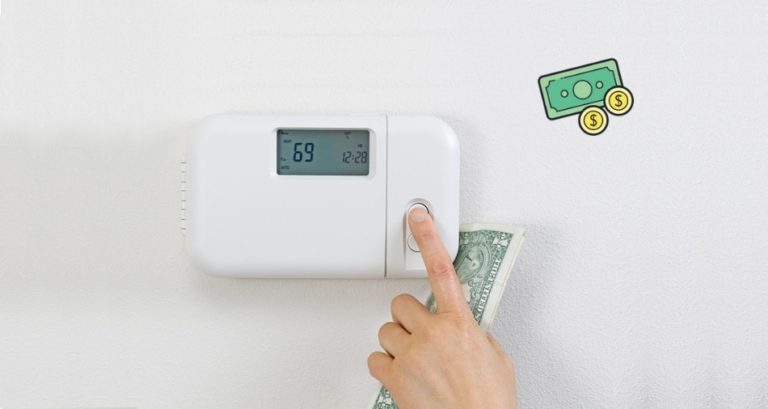Is It OK To Pee In a Shower? Expert Explain

Each of us uses the shower daily, so we know how important it is to keep it neat and clean. But during the shower, we might question certain habits, such as whether it’s acceptable to pee there. Many people think it is fine to do this, as the running water helps immediately wash it away, maintaining the cleanliness of the shower space. However, is this true? In this article, we’ll talk about that. So, let’s start!
Is It OK To Pee In a Shower? Yes, it is generally considered OK to pee in the shower. Many people do it as a time-saving or water-conserving measure. The shower water can quickly wash away urine and potential bacteria. However, urinating in public showers such as gyms, hotel rooms, and others is not recommended.
If we put water saving aside, you might have questions regarding the cleanliness and safety of urinating in the shower. After all, the purpose of a shower is to remove all dirt, sweat, and dirt from yourself. In reality, urine might not be as sterile as others are saying. Still, generally, it doesn’t pose a significant health risk if you choose to pee in the shower occasionally rather than using the toilet.
Table of Contents
Do People Actually Pee In A Shower?
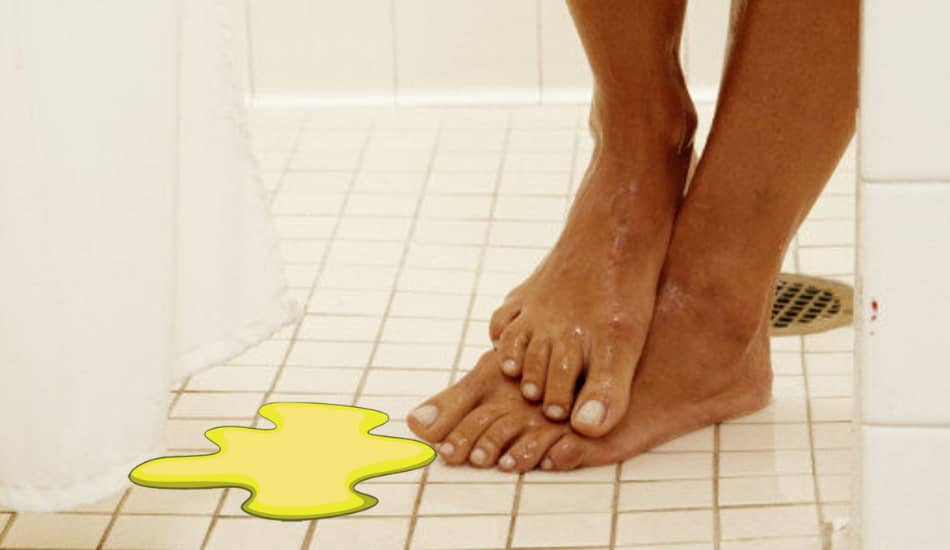
A study that involved 10,000 participants (both male and female), showed that around 45% of individuals peed in the shower at least once. This statistic suggests that nearly every other individual (male and female) has peed in a shower, while many do this frequently. Although this study isn’t covered in detail, we’ve dedicated time to gathering all accessible information and have compiled our findings here in this article. Below, we will give some of the explanations.
Related Article: Can I Pee In The Sink? Plumber Explain
Reasons Why People Pee in The Shower
When it comes to shower habits, one topic that often sparks curiosity and diverse opinions is urinating while taking a shower. Even though this topic is a bit scary for some, it’s crucial to acknowledge that this practice is common today. Let’s delve into some of the main reasons behind this behavior.
- Convenience and Accessibility: Often, individuals may find the shower a more accessible and convenient option for urination than the toilet, particularly in tight spaces or in a rush.
- Water Savings: Some individuals urinate in the shower to save water. Toilets consume a considerable amount of water for each flush, while the shower is already in use and requires no additional water to wash the urine away, presenting a more environmentally friendly alternative.
- Time Efficiency: In situations where time is precious, opting to pee in the shower may appear to be a faster solution than using the toilet. This can be especially applicable in bustling households where the bathroom is frequently occupied.
Here is one interesting video on YouTube that shows why you should pee in the shower:
So, Is It Okay To Pee In a Shower?
Urinating in the shower is often considered acceptable, although different opinions exist. The primary purpose of a shower is to clean the body, and with water constantly running, it’s easy to wash away urine immediately.
Suppose you have a toilet in your bathroom. In that case, you might prefer to use it for urination, but using the shower can be seen as a practical option, especially since it’s an action that both men and women can do without much difficulty. The only problem you might have after a while is the smell of urine that can remain on the tiles.
Related Article: How Do You Clean Pee Out Of a Sink?
How To Get Rid of Urine Smell From A Shower?
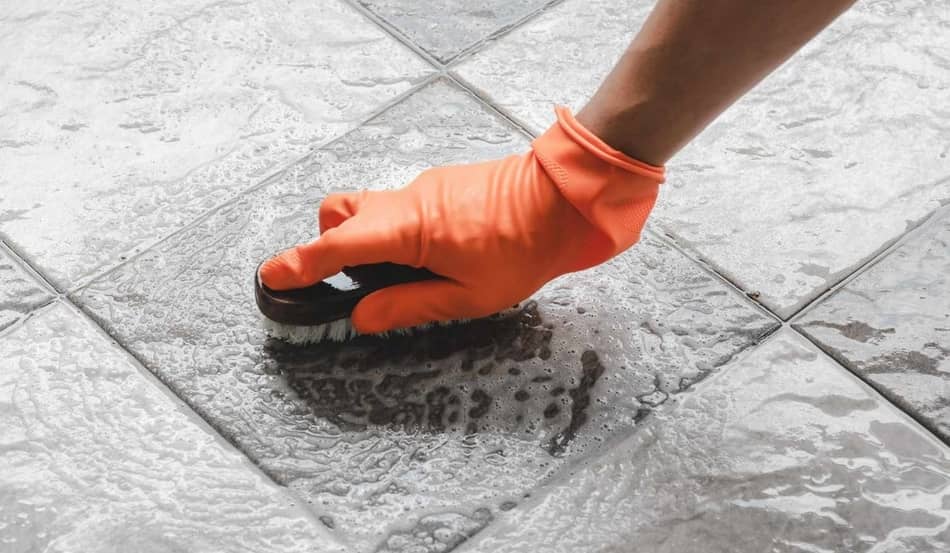
If your shower has been subjected to urination and is now emitting an unpleasant smell, don’t worry—we have some effective methods that you can use to remove that unpleasant odor. Following these steps, you can successfully remove the unwelcome urine smell from your shower.
- Pour 1/4 cup of baking soda directly onto the shower floor.
- Follow this by pouring 1/2 cup of white vinegar over the baking soda, ensuring they mix togehter.
- Allow the mixture to sit for about 30 minutes.
- Finally, use the showerhead to rinse the area with hot water, ensuring all residue is washed away.
A plumbing expert shared with us that this method has consistently proven effective in removing urine odors in showers. As such, we highly recommend giving it a try.
Related Article: Are There Any Downsides to Urinating in the Sink?
How About If You Share a Shower?
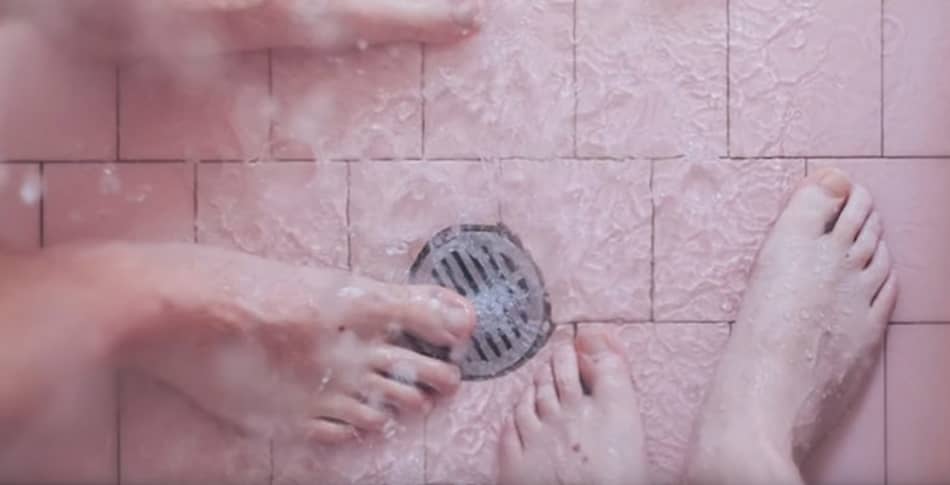
If you are peeing in a shower that is shared with others, it is not recommended to do this often. This is particularly important unless all parties sharing the shower space are comfortable with this practice, and there are no present risks of transmittable infections.
The complexity of a communal shower setting arises from the uncertainty of the health status of all individuals using the space. Someone might have a urinary tract infection (UTI) or another type of infection. Given that certain bacteria in urine have the potential to cause infections, there exists a minor risk of transmission, especially if you have any open wounds or cuts on your feet.
Benefits of Peeing In The Shower
Engaging in this practice can contribute to significant water savings. A campaign called #GoWithTheFlow, initiated by students from the University of East Anglia in England in 2018 encouraged people to pee while showering to save water. Skipping just one toilet flush daily can save over 1,100 gallons of water annually. Here are some of the pros of peeing in the shower:
It Might Be More Hygienic Than Using Toilet Paper
When cleaning up after using the bathroom, dry toilet paper may not be the most effective option, as it can sometimes spread rather than remove residues. This is especially important for individuals with vulvas, as improper wiping could introduce bacteria into the urethra, raising the risk of urinary tract infections.
However, showering offers a hygienic alternative, where water cleans and rinses away any residues. Also, it’s important to be cautious and ensure that urine does not come into contact with your legs, feet, or any open wounds to prevent any potential bacterial exposure.
Environmentally Friendly Practice
The environmental impact of peeing in the shower is significant. According to University of East Anglia officials, the water savings could fill an Olympic-sized swimming pool 26 times a year. Additionally, this would reduce toilet paper usage, sewage system waste, and the burden of waste cleanup.
Related Article: Is It Okay To Pee in Pool? Expert Explain
Can Urine Treat Athlete’s Foot?
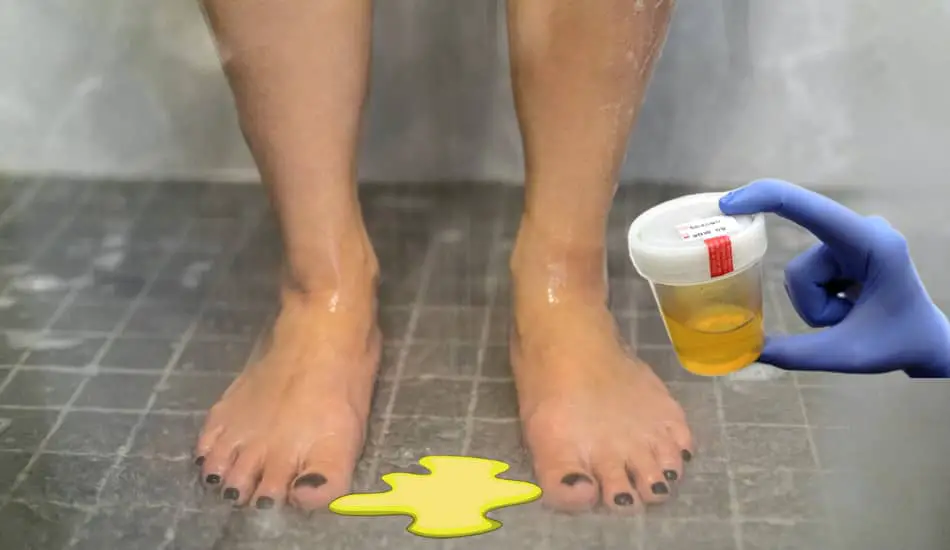
The use of urine for medicinal purposes, also known as urine therapy, involves either drinking one’s own urine or applying it directly onto the skin. This practice is found in various cultures globally. Some individuals think that applying urine to their feet could potentially aid in combating or preventing athlete’s foot, a fungal skin infection, due to urea in urine, a component found in numerous dermatological products.
Nonetheless, it’s important to note that there is no scientific backing to support the effectiveness of urine in treating athlete’s foot or any other infections or conditions.
Related Article: Does Peeing In The Shower Save Water?
What Could Go Wrong If You Pee In the Shower?
It’s possible that harmful bacteria from your urine might find its way into a cut or wound on your body, potentially leading to an infection. Dr. Sonpal points out that while this situation isn’t typically dangerous, it’s more probable to happen if you have a urinary tract infection and urine comes into contact with an open wound.
It’s also important to remember if the shower is shared with others, as there’s a chance someone else could have a urinary tract infection. Dr. Sonpal recommends thoroughly cleaning the area with soap and water and rinseing the shower with clean water after urinating. Doing this will ensure that each person who uses this shower is safe because damp environments can foster the growth of bacteria and yeast.
How Often To Clean the Shower
Make sure to clean your shower and bathtub using a germ-killing solution at least once every week. This practice helps eliminate harmful bacteria that might lead to infections. A clean shower and bathtub also hinder the development and dissemination of mold, a fungus that flourishes in moist conditions like those found in showers. If mold accumulates excessively, you might start to detect a damp, old smell around your house, which could raise health issues.
Related Article: Can You Pee In a Hot Tub? Expert Explains
What Experts Think About Peeing In The Shower?

This topic has sparked a debate among many experts in this field. Many professionals think urinating in the shower isn’t an issue as long as it’s done in your own shower and not in a public shower such as a gym. Generally, urine doesn’t harbor living microbes, so the chances of spreading diseases are relatively low.
The concern arises when it comes to shared bathroom facilities. When you use a communal shower and someone has a urinary tract infection, the risk of transmitting harmful bacteria and potentially contracting an infection yourself could increase.
Related Article: Can I Pee In the Bathtub? Expert Explain
Final Thoughts
For many people, peeing in the shower is not a problem. Dr. Sonpal assures that urinating in the shower doesn’t pose a significant danger. Also, Dr. Sonpal recommends removing this habit if you’re dealing with a yeast infection. For individuals mindful of their environmental impact, it’s noteworthy that choosing to pee in the shower contributes to water savings. This practice and maintaining proper hygiene are another step towards minimizing waste. I hope this article has helped you, and if you have any other questions, feel free to comment below.


